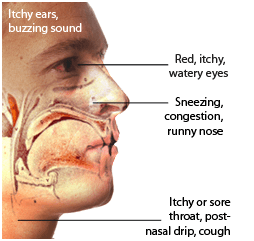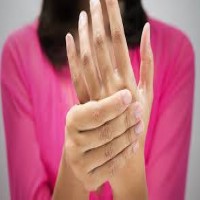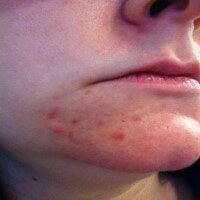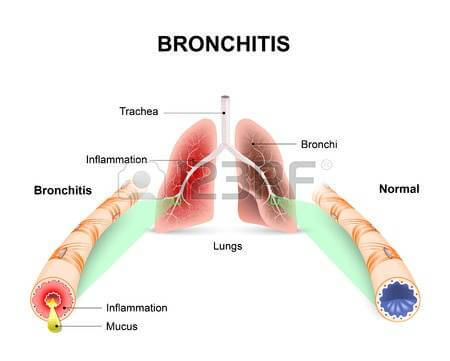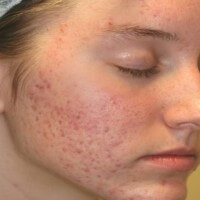Allergic Rhinitis
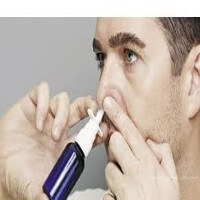
Allergic Rhinitis or ‘hay fever’ occurs due to the exposure to allergens like pet hairs, pollens, dust, etc. resulting in the inflammation of the inner lining of the nose. The classical sign of allergic rhinitis is rhinorrhea (excess nasal secretion) and it can be seasonal as well as perennial. The seasonal allergies last only in particular seasons or during pollination period while the perennial allergies develop throughout the year.
Ayurvedic Description Of Allergic Rhinitis
Ayurveda defines Allergic Rhinitis as Vata-Kaphaj Pratishaya (rhinitis involving Vata and Kapha doshas). It is the result of impaired digestion and metabolism from the incompatible food combinations and wrong diet, which affects the Rasa and the Rakta dhatus. Thus, leading to Rhinitis or Pratishyaya, as Vata and kapha doshas are involved in the pathogenesis, this particular form of Pratishyaya is called Vataja-Kaphaja Pratishyaya.
Signs & Symptoms
- Nasal discharge
- Sneezing
- Nasal Congestion
- Nasal Obstruction
Causes and Risk Factors:
1. Genetic Factors:
The primary risk factor for developing allergic rhinitis is the genetic history of the parents. If both the parents have allergic rhinitis, then there is a 75% chance that the children will too get affected from it.
2. Medical conditions
The chances of developing allergic rhinitis is increased with other allergies. The most common allergies or allergic conditions associated with allergic rhinitis are Asthma, Eczema, and Food allergies.
3. Age
Although allergic rhinitis often appears in childhood, it may occur at any age. In general, if the condition occurs in early childhood, it may not reoccur in adulthood. However, if the initial onset is at the age of 20 years or older, allergic rhinitis may continue till middle age.
4. Environmental Factors
Allergic rhinitis may be more prevalent in people who are exposed to the environments having seed dust, wood dust, animal dander, textile dust, rubber latex, certain foods and spices, storage mites, odors and fumes (such as smoking or air pollution).
Self Care Tips
- Avoid exposure to the allergens causing allergic rhinitis.
- Reduce exposure to dusty environments.
- Adopt nasal irrigation or oiling techniques to keep the nose moist.
- Wear a facemask for protection in pollination season.
All the three doshas required to be corrected to treat the allergic rhinitis. The treatment includes detox therapies and certain life style changes. The process albeit is slow but effective, hence keeping patience is a must thing while undergoing Ayurvedic treatment for allergic rhinitis.

